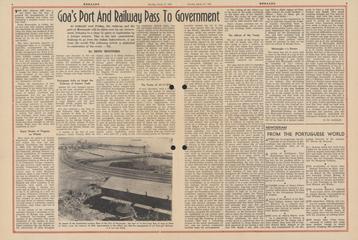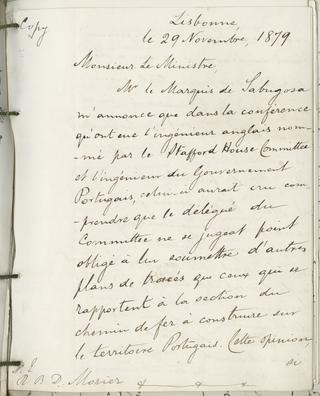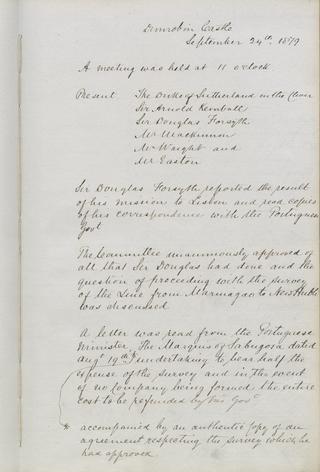
West of India Portuguese Guaranteed Railway Company
The West of India Portuguese Guaranteed Railway Company (WIPR) was a British-backed railway enterprise undertaken on behalf of the Portuguese government in India. A railway to connect British India and the Portuguese colony of Goa was stipulated in the Anglo-Portuguese Treaty of 1878. The railway was planned to link the Portuguese port of Mormugao, Goa and British-controlled Hubballi (New Hubli) in Dharwad, Karnataka, south-west India. The locations of the proposed termini of were contested and surveys were undertaken that concluded that Mormugao offered better prospects than the British port of Karwar in Konkan, Karnataka as the coastal terminus. Londa in Belagavi, Karnataka became the British terminus and route went via Castle Rock, Uttara Kannada, Karnataka.
The railway was 124 miles long and traversed the Western Ghats (also known as the Sahyadri) mountain range. The contract to proceed with the railway was signed on 18 April 1881, construction commenced in December 1881 and was completed in January 1888.
In 1892, the 1878 Treaty was abrogated and neighbouring railways such as the Southern Mahratta Railway, which connected with the WIPR, tried to force practical and financial concessions from the WIPR. The local government in Portuguese India had initially subsidised the enterprise, and the financial responsibility subsequently passed to the Portuguese government in Lisbon. The British-owned Southern Mahratta Railway then sub-let the line in 1902.
When India gained independence from Britain in 1948, the WIPR was transferred to Indian Railways. In 1955 operation of WIPR was returned to Portuguese control. Subsequently, the Junta Autónoma dos Portos e Caminhos de Ferro do Estado da Índia (Autonomous Board of the Ports and Railways of the State of India) owned by the Portuguese Government took over operations on 1 April 1961. However, in December 1961 Goa was annexed by India and the railway transferred into Indian government ownership on 8 January 1962. The line is still in existence as part of Indian Railways' Southern Railway.

